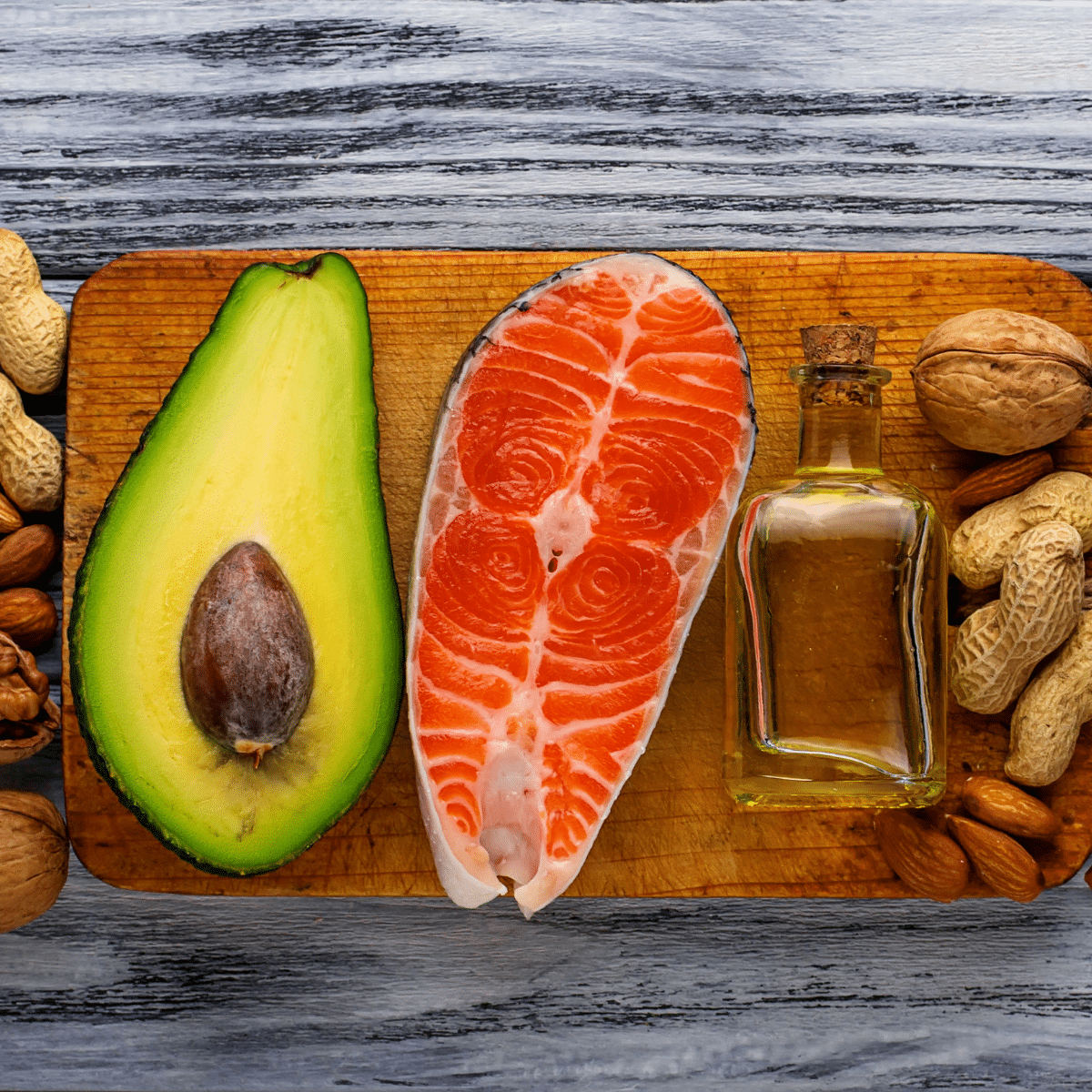Fats get a bad name; however, they are an essential nutrient needed in our diet to give our body energy, absorb vitamins, and protect our brain and heart health. For many years we have been told that fat causes us to gain weight, raise our cholesterol and cause other health problems, which is true for certain types, however, we now know that not all fats are the same.
Saturated and trans fats are the ones to watch out for and eat in moderation as part of a healthy balanced diet. This is because they raise your LDL (bad) cholesterol, which high levels are linked to heart and circulatory diseases. Trans fats can often be found in biscuits, cakes and margarine and saturated fats are found in cheese, butter and animal products.
However, not all fats are bad! There are many health benefits from incorporating healthy fats into our diet and UK government guidelines suggest cutting down on saturated fats and replacing them with healthy essential fats.
So, which fats are healthy and what are the benefits?
Unsaturated fats
There are two types of unsaturated fats, polyunsaturated and monounsaturated. They are liquid at room temperature and begin to harden when chilled, olive oil is a good example. The difference between these two types of unsaturated is that their molecular structures are slightly different.
Unsaturated fats are found in a variety of foods and oils such as:
– Avocados
– Nuts
– Seeds
– Olive oil
– Rapeseed oil
– Salmon
– Mackerel
Eating a diet rich in unsaturated fats has been linked to improved blood cholesterol levels by lowering LDL (bad) cholesterol which protects your heart and reduces your risk of heart disease and type 2 diabetes.
As well as protecting heart health, unsaturated fats are vital for brain health. The human brain is almost 60% fat, so it’s not surprising that fatty acids are one of the most crucial molecules which determine how your brain functions and performs.
They also have a role in helping the body to absorb vitamin A, vitamin D and vitamin E. This is because they are fat-soluble vitamins, which means they can only be absorbed with the aid of fats.
Omega-3 and 6 essential fatty acids
Fatty acids are important types of polyunsaturated fats. Omega-3 can be found in oily fish such as salmon and mackerel. Omega-6 is found in vegetable oils such as sunflower oil, rapeseed oil as well as sunflower seeds, and pumpkin seeds.
Our bodies cannot produce omega fats; therefore, we must get them from our diet. It has been found that omega-3 helps to: lower blood pressure, reduce triglycerides, slow the development of plaque in the arteries, improve brain and heart health and reduce the likelihood of heart attack and stroke. Research also shows that omega-3 may help to protect against memory loss and dementia as well as ease arthritis and joint pain.
When it comes to our cells, omega-3 and 6 essential fatty acids are important structural components of cell membranes. These fats are crucial for skin appearance and function as they help create the skin’s natural oil barrier, meaning plumper, hydrated and younger looking skin.
Finally, here are a few top tips to help you eat a healthy diet:
1. To ensure the UK population are consuming enough omega 3, it is recommended that we eat at least two portions of fish per week, one of which should be oily (e.g. salmon)
2. Drizzle salads with extra virgin olive oil
3. Add nuts/seeds to your morning porridge or lunchtime salad
4. Add avocado to sandwiches, salads or your morning smoothie
Remember, if you’re not sure about the fat and energy content of food, always check the label.




